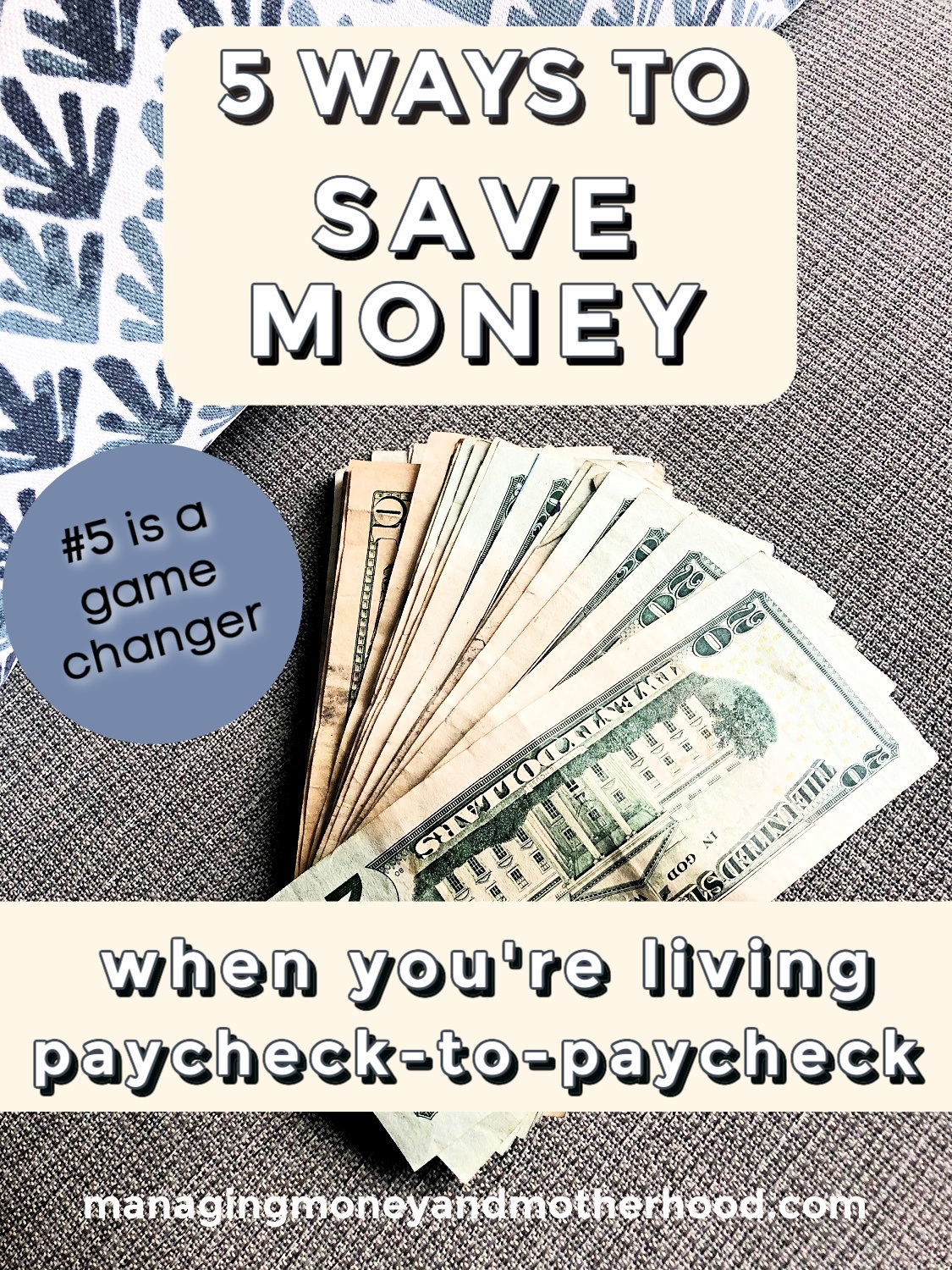In early adulthood I had no idea how to save money. Frankly I SUCKED at it. When I look back at it now, I could literally slap myself. At any given time, I worked two jobs, had no children or major debt, and I still managed to blow ALL OF MY MONEY.
I wasn’t raised by a family that taught the importance of saving money, or really any important financial advice. The major theme of my parents’ money habits was; if you have it spend it, or better yet, if you want it buy it.
Up until my mid-to-late twenties I spent every dime of every paycheck before my next payday. If I didn’t have money, I’d buy the things I wanted using credit cards. To be honest, I never saw the problem with this since I had everything I wanted.
Over the years I have learned that saving money matters! Having children was one of the major contributing factors for me to get my head out of my rear end. Thinking less of myself and more of the future of my family was something that came naturally after motherhood.
At first, I was no good at saving money. I would start with great intentions. This paycheck I’ll save $50. That would go well for a few weeks, and then something would come up and I would spend the $50 I had saved. Why? Was I so desperate for the $50 I couldn’t find a way to forgo using it? Was it truly an emergency? Most likely the answer to those questions was, no.
1. Stop Accruing Debt
The first thing you need to do to start saving money is to immediately stop accruing debt. If you use a credit card and do not pay the full balance on that card each month, stop using it! Credit cards can be a great tool to build credit, insure your purchases/identity, and get points and incentives. However, on the opposite end, credit cards can enable you to spend money you don’t have.
There were a few things I had to discover in order to find my saving grove. Here are some of the tips and tricks I learned along the way;
I grew up in a family that used debt to pay for many day-to-day expenses and when I got my first credit card at 18, I too maxed it out on everyday purchases. Michael (my husband) and I moved into our first apartment together. We literally spent every penny we had to pay the deposit and first months rent. When we finally got the keys, we had $0 and only a bed in our apartment. So, what did we do? We used my one credit card to buy all the things we needed to survive in our new apartment. The credit card was maxed out that same month.
2. Plan Your Meals
If you are not already meal planning, you are definitely spending more than you should be on groceries. Benjamin Franklin said, “By failing to prepare, you are preparing to fail.” If you are failing to plan your family’s meals, you are most likely over spending and eating out frequently.
I used to meal plan for two weeks at a time. I found that weekly meal planning was what optimized my grocery budget. There are a few tips and tricks I have learned along the way that have reduced my grocery spending by half. You can read more of how I create my <meal plan> and <grocery budget> here.

3. Divide Spending Money by Week
Not only do I plan my meals by week, but I plan my spending week by week. My husband and I get paid twice a month. When we get paid, the first thing I do is pay the bills that are due during that pay period, this includes savings. Then, I divide our spending money into weeks. It is by far easier to track seven days of spending then to track two weeks, or even a month.
That weeks’ worth of spending money is then categorized into my most common expenses during the week; groceries, gas, and misc. If I happen to spend more on groceries then expected it means that I need to cut spending in another category and, if I have money left at the end of the week, it can go directly to savings.
4. Save ‘Bonus’ Money
It is so easy to go on a spending spree when you receive a little extra cash. I feel like it is a bigger trigger when you’ve been “going without” in order to save money.
Every year we get a tax return. It is near the same amount each year, as we have had the same income for a few years, increasing in small amounts. In the past we would have a list of all the things we needed to buy with our tax refund check, and it was virtually spent before we even received it.
When we decided we needed to get serious about saving money the first thing we agreed to do was to save any extra money that we received. We budgeted out our average monthly income from our day jobs, and anything more then that would go directly to a savings account.
We saved any extra money that came to us. This included tax returns, bonuses, money from selling items second hand, and money we received from side hustles. Just by saving the extra money we were able to save $10,000 in one year.
5. Hide Your Money
If you don’t have much willpower when it comes to spending money you were planning to save, hide it.
When I first started saving money it was for maternity leave. I knew that I would have 3 weeks of paid maternity leave but the rest of the time I was going to have to save for myself.
Sometimes when we are learning to change our habits, we have to ask for help. I asked the payroll clerk at my job to split my checks into two; one being a rather small portion, and the other a portion one that I could live off. Then I asked her to keep the other checks until I went on maternity leave.
She was so sweet to comply. I knew I did not have the willpower to save that portion of my paycheck. Asking her to hold the checks was the only way I was able to save 2 months of my income.
To this day I still do a similar technique. I save my money in a bank account that I do not have a debit card for. The bank where my savings is, is a small bank with only a couple of locations in my area. I write checks to myself and remote deposit them so that I don’t have to go into the bank and there is no way to easily transfer money from my savings account into my spending account.
An alternate way to do this, would be to set up an additional savings account at your current bank that you could easily transfer money to, but that doesn’t show up on your main banking access. This would allow you to easily transfer money to the account but may be slightly more difficult to access then your normal savings account.
Give Yourself Grace
Remember, creating new habits can be hard. Most of us mess up in the beginning. Keep trying. What works for you will be different from what works for someone else.
I hope that at least one of the tips and tricks that help me save money will help you begin to stock up a little extra cash. If there was anything you found inspiring or attention worthy comment below.
You’ve got this mama. The fact that you’ve read this blog post proves you are making moves!
All my love,
Ivy



